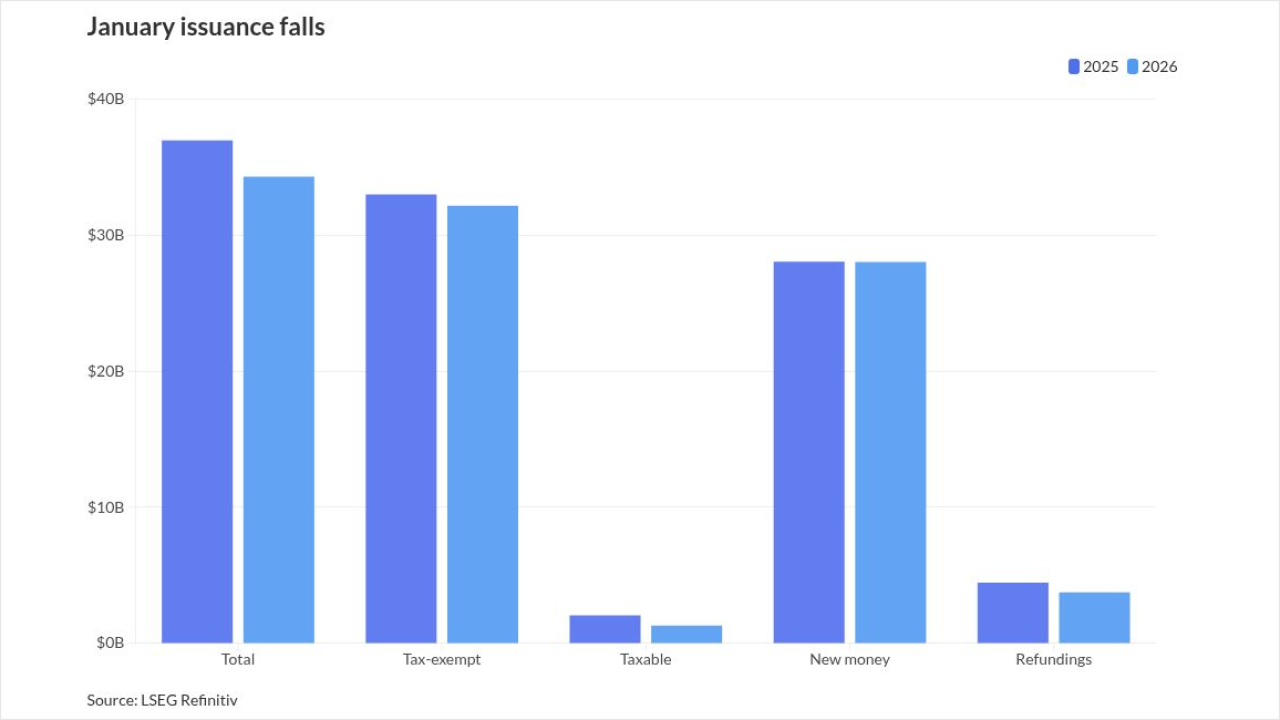CHICAGO – The Detroit Public Schools could see a fiscal fallout if organized "sick-outs" by some teachers are prolonged, Moody's Investors Service warns in a new report that comes as the district has warned it's running out of cash to stay afloat.
The organized sick-outs began on Jan. 11, forcing the system to shutter more than 60 schools that serve 30,000 students. Teachers were protesting the poor condition of school facilities that they say jeopardize the health and safety of students and employees. Moody's rates the school system's debt Caa1 with a negative outlook.
"The action…highlights the bleak financial condition of the district, as well as its poor facilities and low workforce morale," Moody's analyst Andrew Van Dyck Dobos wrote in the rating agency's weekly outlook. "Continued sickouts may further incentivize students to flee the district, resulting in lower per-pupil revenues from the State of Michigan and continuing a downward spiral of credit quality."
The teachers turned to the organized "sick-outs" because state law bars strikes.
If continued, the state could take steps to intervene. Some Republican lawmakers say they will press for legislation that puts sickout action in the category of a strike. Mayor Mike Duggan has ordered inspections of all schools.
The district's fiscal stress led to its placement under state oversight seven years ago and Snyder last year began pushing for a major restructuring that has been slow to gain momentum. Pieces of the plan were introduced on Thursday that would pave the way for Snyder's plan to split the district into two entities, leaving the majority of its debts with the former organization and the system's assets and operations with the new entity.
The district faces a fiscal reckoning that begins next month.
The district will see its expenses go up by $26 million monthly beginning in February when it must begin repaying cash flow notes issued to paper over operations. That amount is equal to about one-third of the district's monthly expenses, Moody's said. In fiscal 2016, the district owes $140 million on debt issued to finance operations.
The district's emergency manager has warned that the system will exhaust cash to maintain operations by April due to its debt load.
Moody's has labeled Snyder's proposed restructuring a credit positive. Under the proposal, the former DPS entity would remain intact to continue collecting tax revenue until its debt is repaid. Those debts include $1.5 billion of unlimited general obligation bonds, $199 million in borrowing from the state's School Loan Revolving Fund, and $259 million in limited GO debt paid by district operating revenues, rather than a dedicated debt service levy.
Without some form of restructuring, Moody's warns that the district could lose even more students as it is forced to divert funds from the classroom. The district has an enrollment of 46,306, down 38% from fiscal 2011. That's driven its general fund revenues down to $667 million this year from $1.13 billion in fiscal 2011, forcing the district to turn to debt to help cover operations.
Moody's warns that long-term pressures abound in addition to the near-term debt operational debt payments as the district faces a $53 million annual expense to repay long-term operational debt through fiscal 2020. Those payments are due on $259 million in outstanding long-term debt issued in 2005 and 2011 to refinance and extend previous short-term cash flow notes.
Snyder's proposal relies on $715 million in state funding that he has defended as more affordable for the state than an eventual default or potential legal action due to the district's burdensome debts. Responsibility for the district's $1.5 billion of unfunded pension liabilities would lay with the new district.
The bulk of the district's ULTGOs are part of Michigan's Qualified School Bond and Loan Program.
Standard & Poor's on Sept. 8 downgraded the district's 2011 and 2012 state-aid backed bonds one notch to A and A-minus respectively amid falling enrollment.





